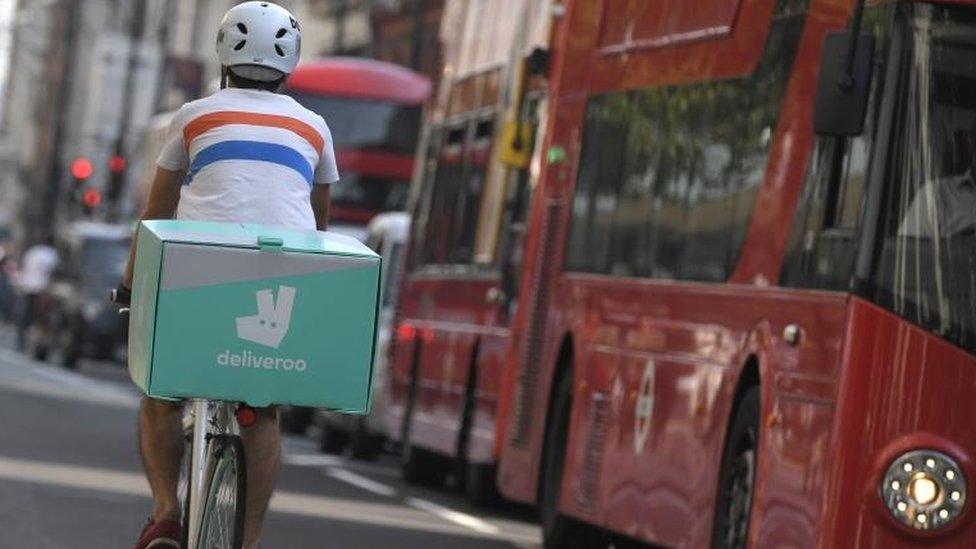Hammond fires starting gun on great employment tax debate
- Published
- comments

The growth of the gig economy, self-employment and hyper-flexible working - big issues that the chancellor wants to tackle.
Although the Chief Secretary to the Treasury, David Gauke, suggested to the BBC that the government had gone far enough on raising taxes on the self-employed, any companies that use self-employed workers should start looking down the back of the sofa for some money.
Uber and Deliveroo - the Treasury is on your case.
Philip Hammond regularly cites evidence that the growth of self-employment is undermining the tax base - by between £3.5bn and £5bn a year by 2020 potentially.
The self-employed tend to be lower paid and also still pay, even with the tax increases, a lower level of national insurance compared to the 12% paid by full-time employees.
Those who are self-employed point out that they are in a much more precarious employment and have often decided to take a risk as entrepreneurs.
And they do not receive pension contributions and entitlements such as holiday pay, which are rights for those directly employed by companies.


Oddly, the government decided to raise taxes on the self-employed first, rather than tackle the advantages gained by companies that use self-employed workers.
Those firms often pay lower levels of national insurance and do not pay pension contributions.
Mr Gauke admitted the area was "more complicated" - but gave a clear signal that action would be taken.
Later this year, Matthew Taylor, the head of the Royal Society of Arts, will produce his report for the government on the world of work.
It is expected to call for a better "balance" between the treatment of employed and self-employed workers, in terms of both tax and rights.
It is likely Mr Hammond will use that as a trigger point for major changes to the tax and rights treatment of the self-employed and those who employ them.